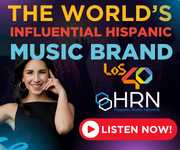Most Consumers Do Not Care About Brands
July 28, 2015
![]() For a few years, media agency group Havas has published an annual index of “Meaningful Brands.” The index measures if consumers could see themselves living without brands X, Y or Z. Turns out they can. And also without A, B, C and pretty much the rest of the alphabet.
For a few years, media agency group Havas has published an annual index of “Meaningful Brands.” The index measures if consumers could see themselves living without brands X, Y or Z. Turns out they can. And also without A, B, C and pretty much the rest of the alphabet.
The 2015 edition of Meaningful Brands in fact reveals that in the U.S., only 5% of brands would truly be missed by consumers. Other regions of the world fare a little better because apparently brand trust in general is much higher there. So globally about 75% of brands would not be missed, with about 25% is meaningful to consumers.
The survey covered 1,000 brands across 12 industries, and 300,000 people in 34 countries were surveyed. So the data is pretty solid.
All this seems to be quite shocking. After all, we spend close to $600 billion on marketing globally. So forget digital ad fraud, viewability, the demise of Gawker and all the other petty arguments we are having on a day-to-day basis. As an industry, we are screwing up big time, because most of U.S. brands are not meaningful to U.S. consumers to the degree that they would not miss 95% of them.
And now I am going to invoke the scorn of people who understand research far better than I do. Because I am not so sure that the Meaningful Brands study is all that meaningful itself.
I base my skepticism on (a) the descriptions of the study goals and premise and (b) the findings. Havas says on its Meaningful Brands website that “People want to improve their lives and the lives of people they care about. Brands that focus on improving society and making our lives easier and healthier gain a greater share existence and receive higher levels of engagement in return.”
I say “duh.” Of course people like brands and companies that improve their lives and make things easier. Which is probably why brands like Samsung and Google are number one and two. Samsung is the most widely sold handset manufacturer in the world, thus making the lives of millions of people easier by putting a powerful computer in their pockets. And Google helps those people find answers to everything they can possibly think of.
But then it gets more curious: Nestle is number three, Grupo Bimbo is number four, and Sony rounds out the top five. According to the Havas survey, both Nestle and Grupo Bimbo score high on the Marketplace growth, Personal Wellbeing and Collective Wellbeing parameters. But Nestle and Grupo Bimbo are ranked as companies, and not with their individual brands, while other brands that score lower, like Dove, Gillette or Ariel, are ranked as individual brands and not as their parent company.
I think that if people were asked about, for instance, Unilever or Yum Brands, they would say “who”? That may also be true for Nestle and Grupo Bimbo. So why are the latter in the top five and others only with their respective brands?
In the end, Havas’ work is interesting in that I do believe that we marketers assign far greater value to the importance of brands than the average consumer navigating a cluttered supermarket aisle. But I’m not sure that simply adding “meaning” to your brand is the answer to consumers’ indifference.
By Maarten Albarda
Maarten has lived in five countries across three continents and honed his integrated marketing communication skills at JWT, Leo Burnett, McCann-Erickson, The Coca-Cola Company and AB-InBev. He now runs his own integrated marketing consultancy in partnership with Flock Associates, and has written the book “Z.E.R.O.” with Joseph Jaffe.
Courtesy of mediapost





























